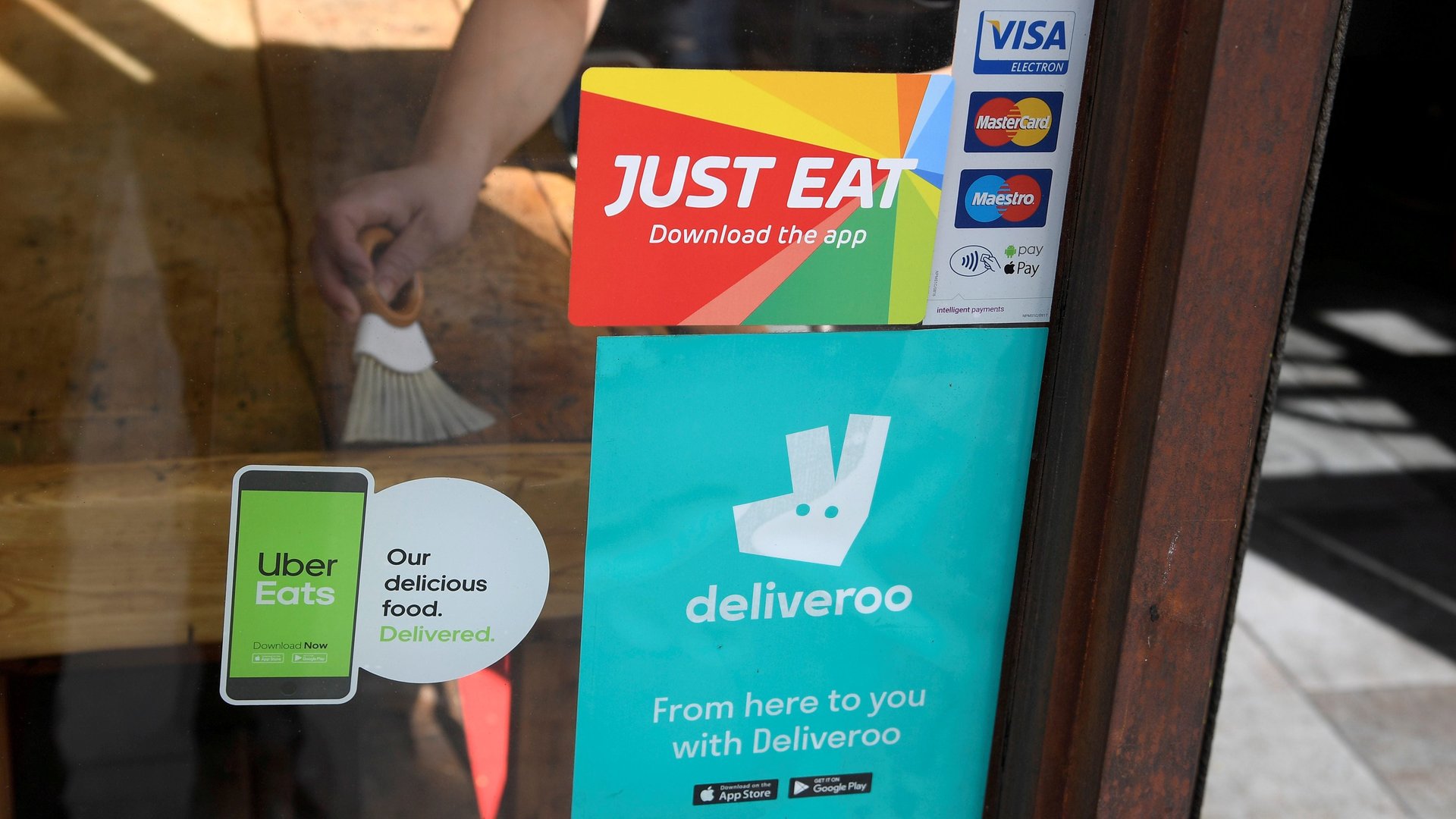For immigrants, the startups disrupting restaurants look as scary as Uber
In the restaurant industry, where competition is fierce and failure is common, life is about to get even tougher. Food-delivery apps have already squeezed margins, forcing eatery owners to pay steep commissions. Now, the rise of “ghost kitchens” (delivery-only restaurants) and “virtual kitchens” (existing restaurants that prep other cuisines for delivery) could put traditional establishments under further duress.


In the restaurant industry, where competition is fierce and failure is common, life is about to get even tougher. Food-delivery apps have already squeezed margins, forcing eatery owners to pay steep commissions. Now, the rise of “ghost kitchens” (delivery-only restaurants) and “virtual kitchens” (existing restaurants that prep other cuisines for delivery) could put traditional establishments under further duress.
As billionaires like Travis Kalanick, the ousted Uber CEO, narrow in on the food business, the influx of venture capital money (paywall) may threaten one of the last bastions of immigrants’ livelihood: starting a restaurant. In January, Kalanick raised $400 million from Saudi Arabia’s sovereign wealth fund to pursue CloudKitchens, a ghost-kitchen network.
Money is pouring into other food startups as well. On Nov. 14, Virtual Kitchen Co., another company founded by former Uber executives, raised $15 million to continue building delivery-optimized kitchens. Others in the space include GrubHub, Deliveroo, and Uber Eats.
For immigrants, the pattern of disruption is all too familiar. Similar to how ride-sharing services upended the taxi industry, new food-prep businesses seem to lower the barriers to entry. The question is, at what cost?
Ghost kitchens could make it easier for aspiring restaurateurs to get a foothold, but the concept instantly introduces greater rivalry among food preppers. It could make regular restaurant-ownership—which entails rent, permits, and hiring waitstaff—nearly unsustainable, especially for smaller, local eateries. As with Uber, more and more people in the industry, providing their labor, could soon find themselves battling for a smaller piece of the pie. Meanwhile, the Kalanicks of the world—the people with equity and who own real estate—may establish structures that richly reward themselves.
It’s estimated the average Uber driver makes less than $10 per hour after vehicle expenses. Since the lockup for Uber shareholders expired on Nov. 6, Kalanick has sold more than $700 million of his stake in the company.
Ultimately, ride-sharing and food-delivery services offer terrific convenience to customers, but they rely on large networks of underpaid workers. Indeed, it’s sufficient to conjure the alternate name for virtual food-delivery businesses: dark kitchens.